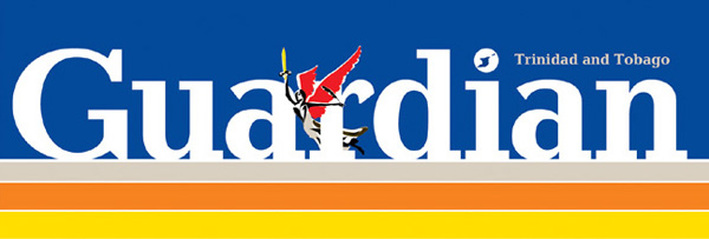The footballers—both residents and non-residents—who have been playing small-goal football there since 1989 maintained it is state land that they brought back to life, and as it is state land, the association cannot charge them to use what belongs to everyone. Without forewarning, the residents’ association began to use heavy equipment to dig the land. The footballers contested this with land survey documents from 1991 showing it to be state land.
The residents’ association ignored this and refused to produce their own documents to prove the land belonged to them. The Diego Martin Regional Corporation told both sides to desist from doing anything to the land until the proper ownership could be confirmed. The footballers agreed, only to discover soon after that the residents’ association ignored the request and restarted their digging. The diggers destroyed the football pitch and made it unplayable.
The police became involved. On arrival they met a local councillor directing the diggers who declared he had the authority do to whatever he pleased with the land. This only served to further inflame the situation, and both sides found themselves in Four Roads police station. Read as a cultural artefact with social history, these events tell us about power, class and privilege in modern-day Trinidad.
The phrase “Every creed and race find an equal place” has always been one of our best sentiments. Yet life in T&T is not so simple. We know not every class has equal political, economic and social power, or access to it. The reason, in basic terms, is historical. Power in our local society is related to the historical realities of transplanted populations and the racial and ethnic hierarchy of colonialism these diverse populations encountered on arrival in the 18th, 19th and 20th centuries. Our various groups and the individuals they produced developed out of such structural relations.
Another way to describe that is to say that certain groups in Trinidad and Tobago have had cumulative advantages over other groups that have often suffered cumulative disadvantages. So for example, it is well agreed that an area like Laventille was not developed with the same investment and care as an area like Woodbrook.
It is much more than just race that determined this. Class has always been a central definer of social, economic and political power in Trinidad. Laventille was not developed, because it was a poor black area. Woodbrook was developed, because it was a middle-class area. A simple way to phrase this is that colonialism and post-colonialism transformed the standards of living in Trinidad for some classes more than others.
What has this got to do with the “land grab” in Westmoorings? Well, let’s break it in two. One of the pleasing things about small-goal football in Trinidad and Tobago is that the automatic solidarity of football and the lime that takes place around it produces—for the most part—a functioning, non-legislative, multicultural space.
This is not to say there is a complete absence of racial, ethnic and class hierarchies on small-goal football fields; rather, it means that mostly—on an average day—racial and ethnic tension is submerged by group solidarity in a fully functioning multicultural football community where football ability, not race, class or ethnicity, is the hierarchal ethos. In this sense, small-goal is a positive cultural product of our colonial past.
On the other side, that some can ignore the requirement for legal documentation of a piece of land before they claim ownership or seek rents for it, demonstrates a belief that they are not subject to the same laws as their fellow citizens. This is a reflection of handed-down colonial inequalities in the wider society. It is a negative cultural product of our colonial past. That they can also reach out to those in power like a councillor to support them is a reminder of the nepotism and connections history has granted some groups over others.
This is the negative side of our multicultural island; the “playing field of life” is not level for every group, and in particular, every class. There is an invisible social structure to our 50-year-old republic. It plays out every day in multiple ways. We all know it when we interact with it. In this story of dispute, this social structure supports a small in-class-group, but punishes the cross-class group.
Who has the power? The former, who do not want to act within the law and play fair? Or the latter, who are playing within the law, but have already lost the use of their football field? The right to use the land is still to be decided, but 50 years after Independence Jeff Henry’s words fit well here and remind us how power functions locally: “The colour of the rulers might darken; the ethnicities might change, blur or merge, but the culture of the power structure remains.”
http://guardian.co.tt/columnist/2012-08-13/level-playing-field

 RSS Feed
RSS Feed